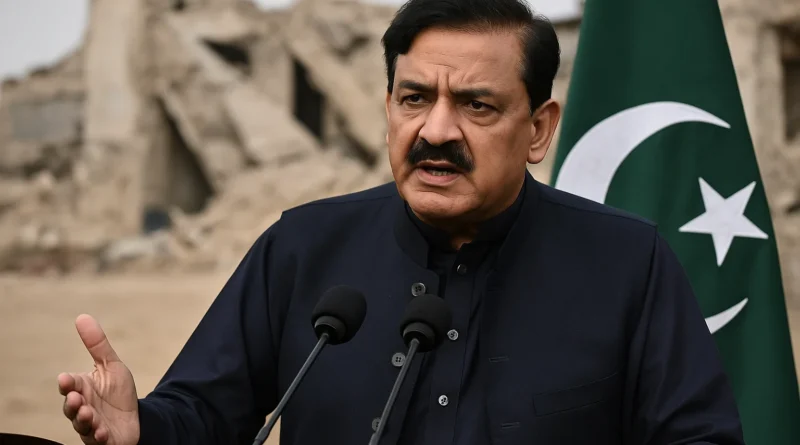Pakistan Condemns US Strikes on Iran’s Nuclear Facilities, Raising Questions of Diplomatic Consistency
Just a day after formally nominating U.S. President Donald Trump for the 2026 Nobel Peace Prize, Pakistan has issued a strong condemnation of the United States’ direct military strikes on three key Iranian nuclear facilities. This rapid shift from hailing Trump as a “genuine peacemaker” to denouncing his administration’s act of war has immediately drawn international attention and sparked questions regarding Pakistan’s diplomatic consistency.
In a statement released on Sunday, June 22, 2025, Pakistan’s Ministry of Foreign Affairs expressed “grave concern” over the U.S. airstrikes on Fordo, Natanz, and Isfahan. The statement asserted that these attacks “violate all norms of international law” and that “Iran has the legitimate right to defend itself under the UN Charter.” Islamabad further warned that “the unprecedented escalation of tension and violence, owing to ongoing aggression against Iran, is deeply disturbing. Any further escalation of tensions will have severely damaging implications for the region and beyond.” Pakistan called for an immediate end to the conflict and urged a return to dialogue and diplomacy.
🔊PR No.1️⃣8️⃣2️⃣/2️⃣0️⃣2️⃣5️⃣
Pakistan Condemns the US Attacks on the Nuclear Facilities of the Islamic Republic of Iran.
🔗⬇️https://t.co/2qpo27WzVQ pic.twitter.com/ugtFomQ5HO
— Ministry of Foreign Affairs – Pakistan (@ForeignOfficePk) June 22, 2025
The Recent Nobel Nomination: A Striking Contrast
This condemnation stands in stark contrast to Pakistan’s very recent diplomatic overture. On Saturday, June 21, the government of Pakistan publicly announced its decision to formally recommend President Donald Trump for the 2026 Nobel Peace Prize. The nomination explicitly credited Trump’s “decisive diplomatic intervention and pivotal leadership” during the recent India-Pakistan crisis in May 2025, claiming his efforts were instrumental in securing a ceasefire and averting a broader conflict between the two nuclear-armed nations. This nomination followed an unprecedented White House luncheon where Trump hosted Pakistan’s Army Chief, Field Marshal Syed Asim Munir, during which the India-Pakistan de-escalation was a central topic of discussion.
International Scrutiny and Perceived Inconsistency
The swift and sharp condemnation of the U.S. strikes on Iran, immediately following the Nobel Peace Prize nomination for the very President who authorized them, presents a challenging narrative for Pakistan on the international stage. Critics are quick to highlight the apparent hypocrisy, questioning how a leader lauded for “peace-making” in one regional conflict can simultaneously be condemned for an act of war in another.
While Pakistan shares a border with Iran and has expressed concerns about regional instability, particularly given the potential for militant groups to exploit any power vacuum, its current stance has opened it up to accusations of opportunistic diplomacy.
The situation underscores the complex and often contradictory nature of international relations, especially in a volatile region like the Middle East. As the U.S., Iran, and Israel continue their direct confrontation, Pakistan’s diplomatic maneuvers will undoubtedly face intensified scrutiny regarding their underlying motivations and consistency on the global stage.

